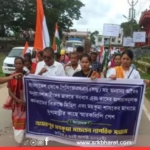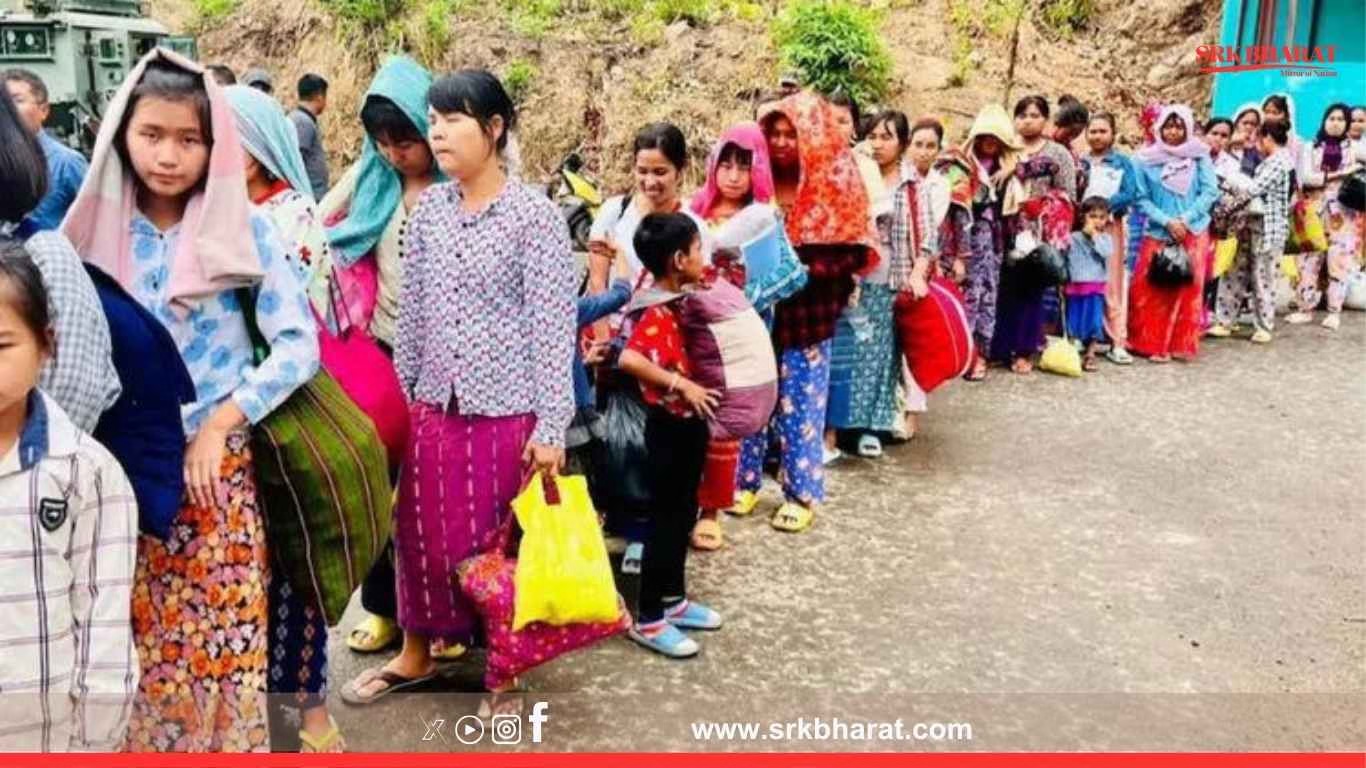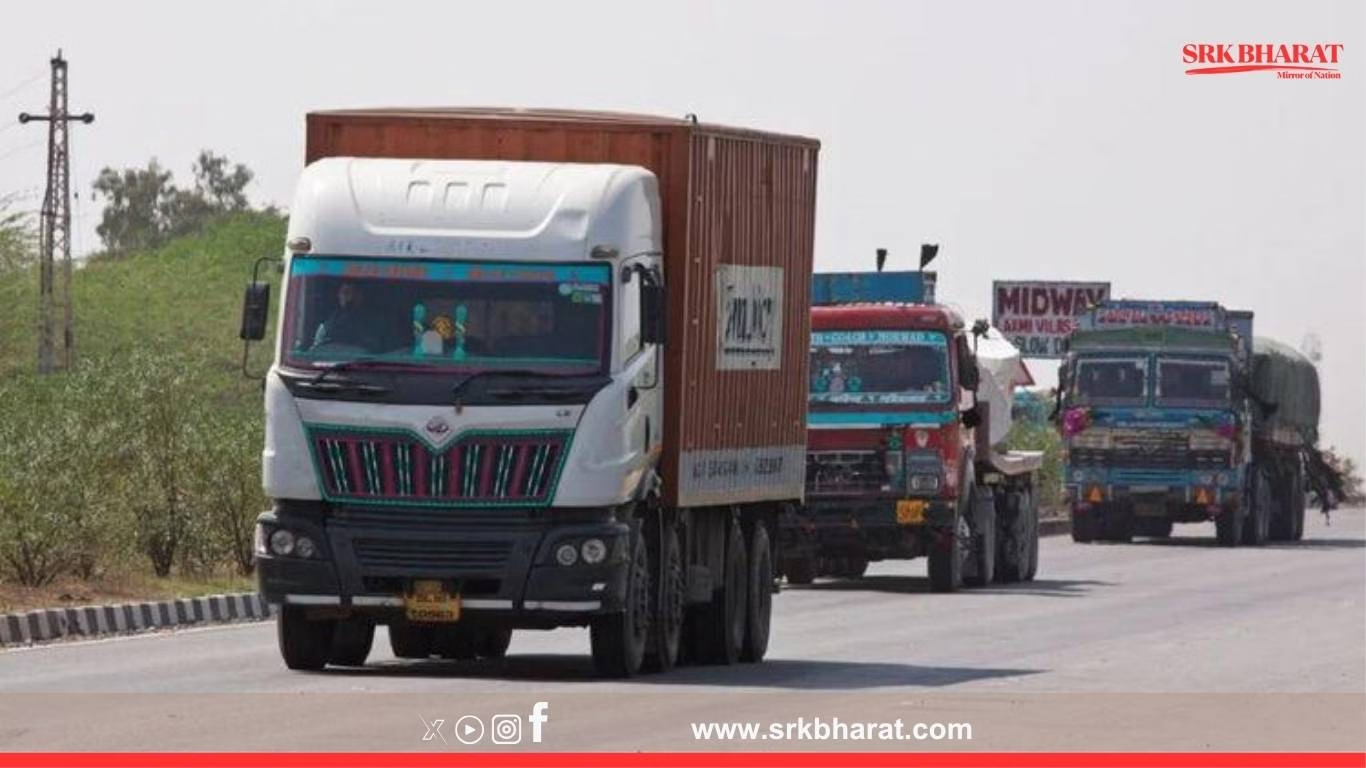Authorities in Assam’s Cachar district have detained nine suspected Rohingya refugees who allegedly crossed into India two decades ago. The group, which includes women and children, was picked up during a joint operation by the Assam Police and intelligence agencies after a prolonged surveillance effort.
Long Stay Without Documentation
According to police sources, the detainees are believed to have entered India illegally from Bangladesh around 2004–2005. They reportedly settled in different parts of Cachar district, engaging in small-scale labour and domestic work while maintaining a low profile.
Officials stated that none of them possessed valid travel documents, residence permits, or refugee identification papers issued by the United Nations High Commissioner for Refugees (UNHCR).
Arrest Operation and Locations
The arrests were made during early morning raids in Silchar, Lakhipur, and Sonai subdivisions. Intelligence teams had been tracking the group for several months based on inputs about undocumented migrants in the area.
| Location of Arrest | No. of Persons Detained | Age Group | Gender Distribution |
|---|---|---|---|
| Silchar | 4 | 18–45 years | 2 men, 2 women |
| Lakhipur | 3 | 20–50 years | 2 men, 1 woman |
| Sonai | 2 | 10–40 years | 1 woman, 1 child |
Police confirmed that identity verification and interrogation are underway to establish their exact place of origin and possible links to Rohingya settlements in Bangladesh’s Cox’s Bazar or Chittagong regions.
Allegations and Legal Proceedings
Officials suspect that the group initially crossed into Bangladesh from Myanmar’s Rakhine State before entering India via the porous Assam–Tripura border. The detainees may face charges under the Foreigners Act, 1946, and the Passport (Entry into India) Rules.
The district administration has also reached out to the Ministry of Home Affairs (MHA) for further directions on whether the group will be kept in detention centres or deported.
Security and Border Concerns
Cachar district shares a strategic boundary with Mizoram, Manipur, and Bangladesh, making it a known corridor for undocumented migration. Security experts say that the arrests underline the challenges in monitoring the extensive riverine and forested border that facilitates illegal crossings.
| Key Security Challenges in Cachar Border Belt | Description |
|---|---|
| Porous International Border | Riverine and unfenced forest stretches allow easy entry |
| Human Trafficking Networks | Organised groups facilitate illegal migration routes |
| Limited Surveillance Infrastructure | Difficult terrain limits the use of advanced monitoring systems |
| Cross-Border Cultural Ties | Similar ethnic and linguistic backgrounds ease integration |
Political and Public Reactions
The detention has sparked political debate in Assam, with some parties demanding strict deportation policies and others urging humanitarian consideration given the Rohingya community’s refugee status.
Civil society groups have called for the protection of human rights, pointing out that many Rohingyas fled persecution in Myanmar and may have been unable to secure legal refugee status.
Local resident Samarjit Das told reporters:
“We understand the security concerns, but we must also see the humanitarian side. If they have been here for 20 years, they have integrated into society to some extent.”
Past Incidents and Wider Context
Assam has previously recorded multiple cases of Rohingya refugees entering the state from Bangladesh. Many of these individuals travel through Tripura and Mizoram, avoiding detection before settling in small communities.
The Rohingya crisis escalated after the 2017 military crackdown in Myanmar’s Rakhine State, which forced over 700,000 people to flee. While Bangladesh houses the largest Rohingya refugee population, India has also seen sporadic entries, especially in border states.
What Happens Next?
Authorities are currently following a three-step process:
- Verification of Identity – Determining whether the detainees are indeed Rohingya refugees or citizens of Bangladesh.
- Legal Processing – Initiating proceedings under immigration laws.
- Coordination with Central Government – Deciding between detention, deportation, or conditional release under monitoring.
Security officials have indicated that deportation will depend on bilateral discussions with Bangladesh, as India does not share a direct border with Myanmar’s Rakhine State.
Balancing Security and Humanitarian Responsibility
While national security remains a key priority, international refugee laws require that displaced persons not be forcibly returned to countries where they face persecution. India, although not a signatory to the 1951 Refugee Convention, has historically provided shelter to various refugee groups under special circumstances.
Experts stress that the government must balance security imperatives with humanitarian obligations, particularly in cases involving women and children who have spent decades in India without legal status.
Disclaimer: This article is based on publicly available information, official statements, and local eyewitness accounts. It is intended for informational purposes only and does not represent a legal position or official government stance.











